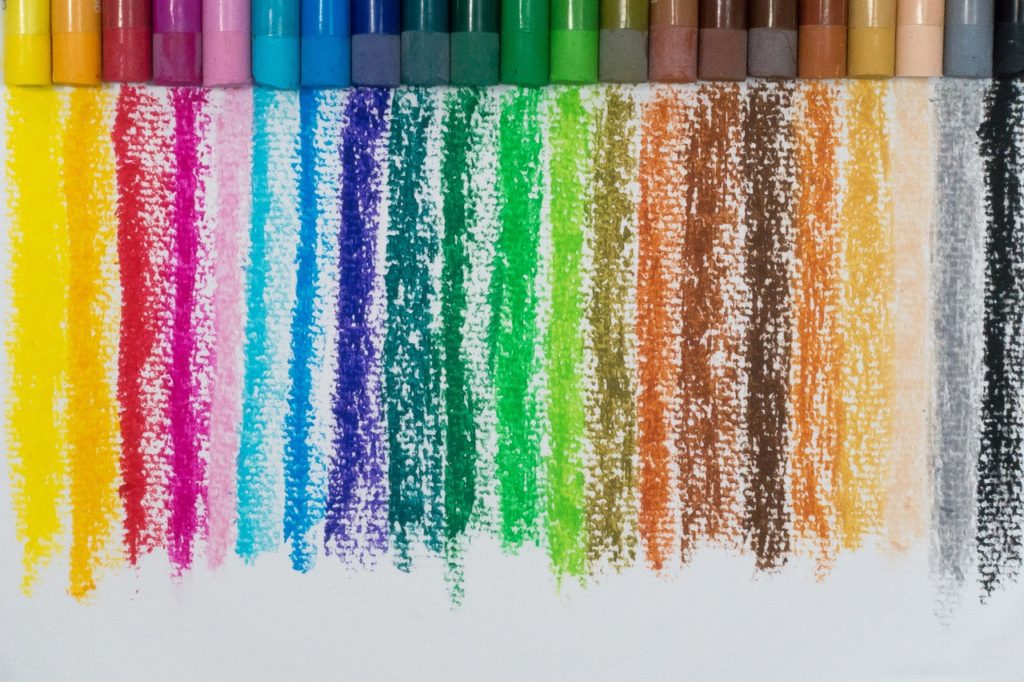by Laura K. Secor

Hello my friends,
As you may recall, in the early days of the pandemic my teenager announced that they were non-binary, and preferred that we use “they/them” pronouns when talking about them. This led to a few months that would have been comical if it hadn’t been so painful, where I would be “at work” talking to my work colleagues about family and weather, and of course I would use the dreaded “she” pronoun to refer to my teenager, and said teenager would come bolting out of their bedroom to correct me. They were oblivious to 99% of what went on around them, but the second the word “she” was uttered, their wrath would fall swiftly upon me.
I’ve adapted, and my work colleagues are by now fully up to speed on this development, which has been with us for almost a year. And over the course of the year, I’ve done a lot of thinking about what it means to reject the binary. Being non-binary is not the only way to challenge gender identity. My teenager’s partner is gender-fluid, which is something very different. When a person is gender-fluid, sometimes they feel male, or mostly male, and sometimes female. So each day it’s important to ask them what pronouns apply that day.
I think if my teenager had been gender-fluid, that might have been intuitively easier for me to grasp. I can imagine “feeling male” – I think. That is, when I write fiction and I’m writing from the point of view of a male character, I give it my best shot. Or when I am arguing with my husband, sometimes I stop and try to see things from the male perspective. So switching between male and female is something not entirely unfamiliar to my imagination.
Rejecting the binary, on the other hand, is a whole different kettle of fish. I’ve had to really spend time with this one to try to understand. And where I have been most confused, and where the exploration has been most fruitful, is the question of the gods we worship. During my ongoing yoga teacher training I’ve spent a lot of time with the Hindu gods and goddesses, and they would be, I think, impossible to imagine without their genders. Each god and goddess has a function tied to the roles considered appropriate for that gender. And the constraint of that viewpoint suddenly seems unreasonable to me. A year ago, I didn’t have any questions about those gender roles. But my teenager tells me that gender is a Western construct, and I’ve had to puzzle over this assertion. At first glance, I would say all the gods and goddesses I know are either gods or goddesses.
However, there are exceptions. There is one god who took on female form, Loki from the Norse pantheon. And there are a couple deities of no particular gender in the Yoruba religion. These exceptions are very important to my teenager. And I admit they do stir my curiosity. Have other cultures at other times been more open to the idea that gender is not necessary? What exactly does this mean? Does it mean that one’s identity as a person is more important than one’s identity as a man or woman? I think it does, and that’s pretty radical. My cultural upbringing is at war with my logic. Why should we feel constrained by one or two physical characteristics, when in fact a human male has a lot more in common with a human female than a chimpanzee male. Right?
It’s so strange to realize that by fighting for “women’s rights” all my life, I’ve been buying into the whole gender stereotype. My teenager has taken the argument to its logical conclusion and said, we’re all just people.
Once you start thinking this way, it’s hard to stop…
Marginal Wisdom by Rev. Leslie Takahashi
They teach us to read in black and white.
Truth is this—the rest false.
You are whole—or broken.
Who you love is acceptable—or not.
Life tells its truth in many hues.
We are taught to think in either/or.
To believe the teachings of Jesus—OR Buddha.
To believe in human potential—OR a power beyond a ¬single will.
I am broken OR I am powerful.
Life embraces multiple truths, speaks of both, and of and.
We are taught to see in absolutes.
Good versus evil.
Male versus female,
Old versus young,
Gay versus straight.
Let us see the fractions, the spectrum, the margins.
Let us open our hearts to the complexity of our worlds.
Let us make our lives sanctuaries, to nurture our many identities.
The day is coming when all will know
That the rainbow world is more gorgeous than monochrome,
That a river of identities can ebb and flow over the static, stubborn rocks in its course,
That the margins hold the center.
